
Find Help
More Items From Ergsy search
-

Can Botox be used for migraines?
Relevance: 100%
-

What is Botox used for?
Relevance: 67%
-

What is Botox?
Relevance: 65%
-

Migraine
Relevance: 63%
-

Migraine
Relevance: 63%
-
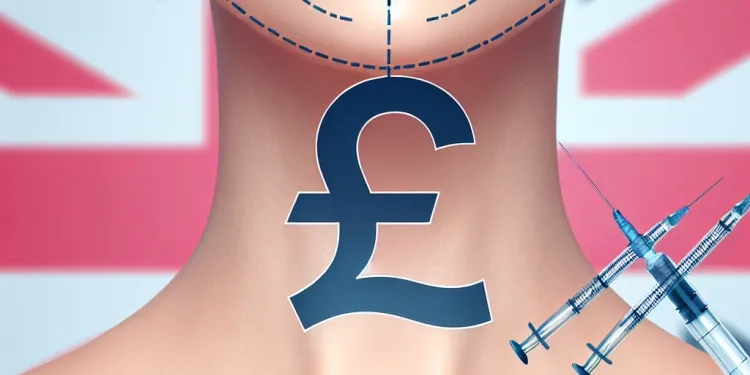
What areas can be treated with Botox?
Relevance: 62%
-

Is Botox safe?
Relevance: 60%
-

Migraine | NHS
Relevance: 60%
-

Migraine | NHS
Relevance: 60%
-

Can Botox be used for treating conditions other than wrinkles?
Relevance: 59%
-

What are the common uses of Botox?
Relevance: 59%
-

What is Botox made from?
Relevance: 57%
-

How does Botox work?
Relevance: 56%
-
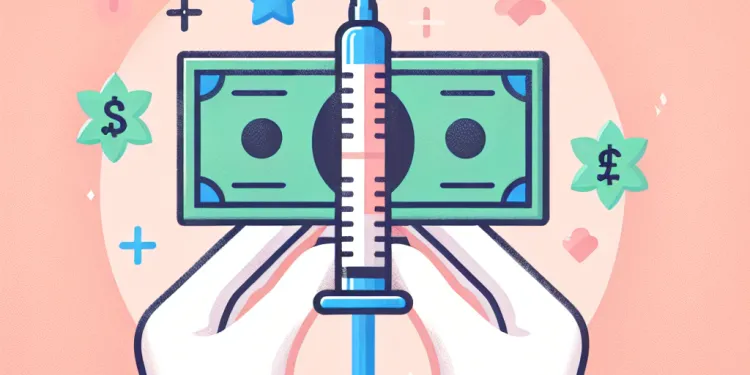
Can anyone get Botox treatments?
Relevance: 56%
-

Can I get Botulism from Botox Treatments?
Relevance: 55%
-

What are migraines and cluster headaches?
Relevance: 54%
-

How long has Botox been used in medicine?
Relevance: 54%
-

Is Botox safe?
Relevance: 53%
-

Can Botox cause serious health issues?
Relevance: 53%
-

How does Botox work if it's related to botulism toxin?
Relevance: 52%
-

Are there any long-term effects of using Botox?
Relevance: 51%
-

Is Botox treatment expensive?
Relevance: 50%
-
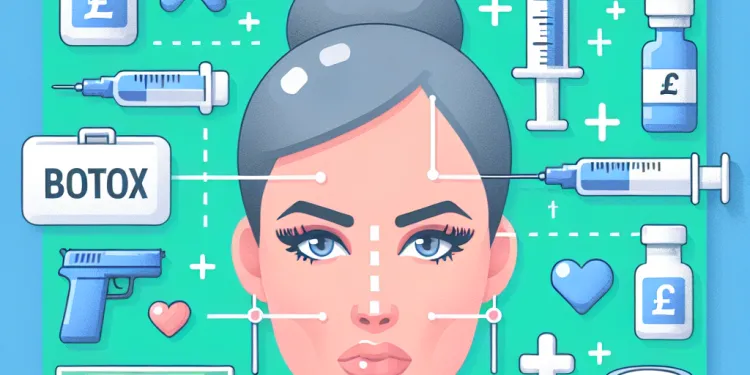
Is Botox vegan?
Relevance: 49%
-

How long do the effects of Botox last?
Relevance: 47%
-
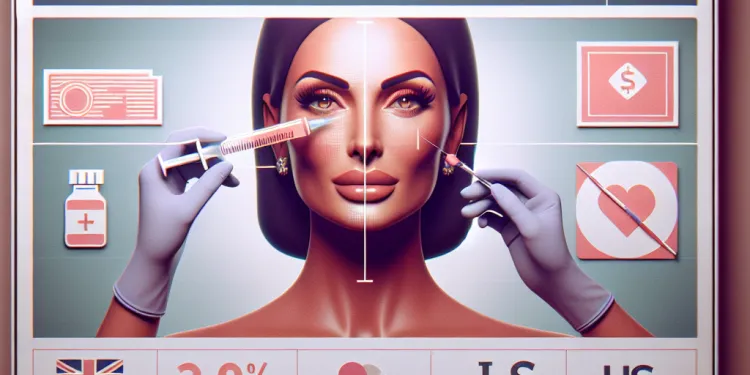
Does Botox hurt?
Relevance: 47%
-
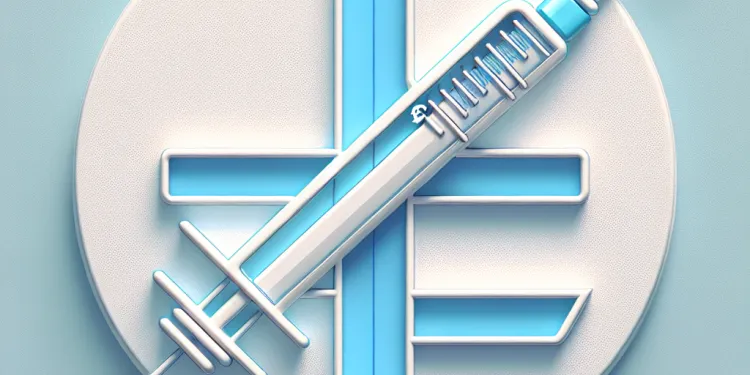
Who can administer Botox?
Relevance: 46%
-
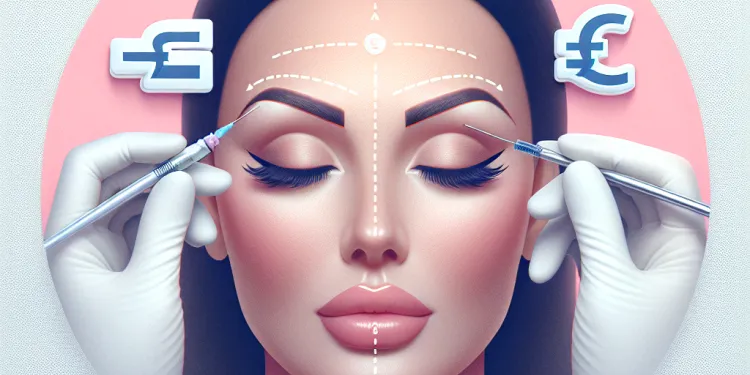
Can Botox lift my eyebrows?
Relevance: 46%
-

What are the side effects of Botox?
Relevance: 46%
-

What are the side effects of Botox?
Relevance: 45%
-

Does Botox injection hurt?
Relevance: 45%
-

How long does Botox last?
Relevance: 44%
-

Can Botox help with excessive sweating?
Relevance: 44%
-

Can I get Botox while pregnant?
Relevance: 44%
-
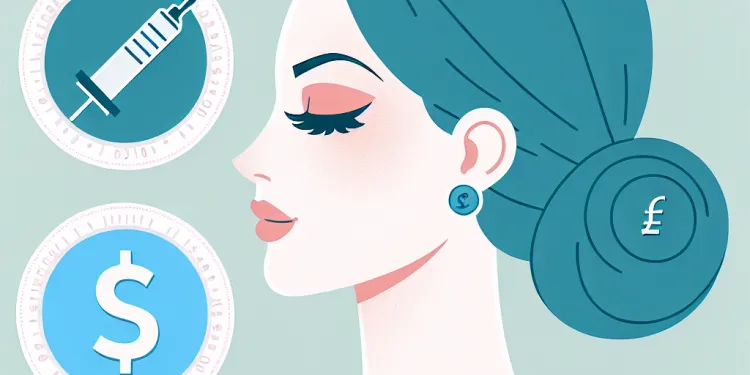
How much does Botox cost?
Relevance: 43%
-

How often should I get Botox treatments?
Relevance: 43%
-

How soon will I see results from Botox?
Relevance: 42%
-

How should I prepare for a Botox appointment?
Relevance: 42%
-

How should I choose a provider for Botox treatments?
Relevance: 41%
-

What precautions should I take before getting Botox?
Relevance: 40%
-

What should I do if I experience side effects after a Botox injection?
Relevance: 39%
Botox as a Treatment for Migraines
Botox, widely known for its cosmetic applications in reducing wrinkles, has gained recognition as an effective treatment for chronic migraines. The use of Botox for migraines was approved in the UK in 2010, providing a new avenue of relief for those suffering from this debilitating condition. Chronic migraine sufferers, defined as individuals experiencing headaches on 15 or more days each month with at least eight of those days involving migraines, may find significant benefit from this treatment.
How Does Botox Work for Migraines?
Botox, or Botulinum toxin, works by blocking the release of certain chemicals in the brain. These chemicals are involved in the transmission of pain signals during a migraine attack. By inhibiting these signals, Botox can help reduce the frequency and severity of migraine episodes. The treatment involves multiple injections into specific areas around the head and neck, targeting the muscle groups associated with migraine pain.
Who Can Benefit from Botox for Migraines?
Botox is typically recommended for adults who suffer from chronic migraines and have not responded adequately to other preventive treatments. It is important for patients to have a confirmed diagnosis of chronic migraines, as opposed to other types of headaches. A specialist, often a neurologist, can help determine if Botox is a suitable option by evaluating the patient's medical history and headache patterns.
Treatment Procedure and Considerations
The procedure for administering Botox injections for migraines is relatively quick, usually taking around 15 to 20 minutes. The injections are given by a skilled healthcare professional, often in a doctor's surgery or clinic. Botox is injected in small doses into 31 to 39 sites around the head, neck, and sometimes shoulders. The effects typically begin to be noticed within a few weeks, and treatments are usually repeated every 12 weeks.
Side Effects and Safety
As with any medical treatment, Botox for migraines can have side effects, although they are generally mild and temporary. Some of the most common side effects include neck pain, stiffness, muscle weakness, and bruising at injection sites. Serious side effects are rare but could include allergic reactions. It is crucial for patients to discuss potential risks and benefits with their healthcare provider.
NHS Availability and Accessibility
In the UK, Botox treatment for chronic migraines is available through the NHS for patients who meet the specific criteria. It has proven to be a valuable option in the prevention of chronic migraines, significantly improving the quality of life for many sufferers. Patients interested in Botox for migraines should speak with their GP or a specialist to determine eligibility and access this treatment through the appropriate channels.
Botox for Headaches
Botox is a treatment that can help with headaches. People mostly know Botox because it helps with wrinkles. But it can also help people who have lots of headaches, called migraines. In the UK, people started using Botox for migraines in 2010. This helps people who have headaches many days each month. If you have headaches on 15 or more days a month, Botox might help you feel better.
How Botox Helps with Migraines
Botox is made from something called Botulinum toxin. It stops certain chemicals in your brain from sending pain messages. This helps make migraines happen less often and not as bad. A doctor will give Botox with small injections around your head and neck. These injections help the muscles that cause migraine pain.
Who Should Use Botox for Migraines?
Botox is good for grown-ups who have lots of migraines and who have tried other treatments that did not work. You need to know for sure if you have chronic migraines. A doctor, like a neurologist, can tell you if Botox might help by checking your health and your headaches.
How the Treatment Works
Getting Botox takes about 15 to 20 minutes. A doctor or nurse gives the injections. They do this at a clinic or surgery. The doctor injects Botox into 31 to 39 places around your head and neck. You might start feeling better in a few weeks. You need to go back for more treatment every 12 weeks.
Side Effects and Safety
Like all medicines, Botox can have side effects. Most side effects are mild and don't last long. Some common ones are neck pain, feeling stiff, weak muscles, or bruising where you got the injection. Serious side effects are rare but could happen. It’s important to talk with your doctor about what could happen and if Botox is safe for you.
Getting Botox on the NHS
People in the UK can get Botox for migraines through the NHS if they meet certain rules. Botox helps many people by stopping their headaches and making their lives better. If you want to try Botox for migraines, talk to your GP (family doctor) or a specialist. They can tell you if you can get this treatment.
Frequently Asked Questions
What is Botox?
Botox is a medication made from botulinum toxin, which is used to reduce facial wrinkles and treat certain medical conditions.
Can Botox be used to treat migraines?
Yes, Botox can be used to prevent chronic migraines in adults by reducing the frequency and severity of headache days each month.
How does Botox work for migraines?
Botox works by blocking the release of certain chemicals involved in pain transmission, thereby reducing muscle contractions and alleviating headache symptoms.
Who is eligible for Botox treatment for migraines?
Botox is typically recommended for adults who experience 15 or more headache days per month, with each headache lasting 4 hours or more.
How often is Botox treatment given for migraines?
Botox treatment for migraines is usually administered every 12 weeks.
What is the procedure for administering Botox for migraines?
Botox is injected into specific areas around the head and neck, targeting muscles associated with migraine pain, in a series of small injections.
What are the common side effects of Botox for migraines?
Common side effects include mild pain at the injection site, neck stiffness, headache, and temporary muscle weakness.
How long does it take for Botox to work for migraines?
It may take a few weeks to see a reduction in migraine frequency and severity after receiving Botox injections.
Is Botox a cure for migraines?
No, Botox is not a cure for migraines. It is a preventive treatment that helps reduce the frequency of migraine attacks.
Can anyone with migraines use Botox?
Botox is specifically approved for chronic migraine patients and may not be suitable for those with less frequent headaches. Consultation with a healthcare professional is necessary.
What should I expect during a Botox treatment session for migraines?
The procedure typically takes around 15-30 minutes, involving multiple tiny injections in targeted areas around the head and neck.
Does insurance cover Botox treatment for migraines?
Many insurance plans cover Botox for chronic migraines, but coverage can vary. It's important to check with your insurance provider for specifics.
Are there any risks associated with Botox for migraines?
While generally safe, Botox injections can have risks like allergic reactions or complications if administered improperly. Professional medical consultation is advised.
Can Botox help with other types of headaches besides migraines?
Currently, Botox is specifically approved for chronic migraines and is not commonly used for other types of headaches.
How do I prepare for a Botox treatment session?
You may be asked to avoid blood thinners or alcohol before the procedure. Your doctor will provide specific instructions based on your medical history.
Can Botox be combined with other migraine treatments?
Yes, Botox can often be used alongside other migraine treatments, such as medications, but you should always discuss this with your healthcare provider.
How long do the effects of Botox for migraines last?
The effects of Botox for migraine prevention typically last about 10-12 weeks.
What should I do if I miss a Botox treatment session?
It's important to keep the schedule recommended by your doctor. If you miss a session, contact your healthcare provider to reschedule as soon as possible.
Is Botox treatment for migraines painful?
Most patients experience only minimal discomfort from the injections, which are performed with a fine needle.
What should I do if I experience side effects from Botox?
If you experience any adverse effects or complications, contact your healthcare provider promptly for evaluation and management.
What is Botox?
Botox is a medicine. It helps make wrinkles on the skin look smoother. Wrinkles are the little lines you get on your skin when you get older.
Some people use it to help with other medical problems too.
If you find this hard to read, you can ask someone to help you understand. Listening to someone explain it can be a good idea.
Botox is a medicine. It helps make skin look smoother and can help with some health problems.
Can Botox help with headaches?
Can Botox stop bad headaches?
Here are some ideas to understand better:
- Talk to a doctor about Botox for headaches.
- Use pictures or videos to help you learn.
- Ask someone to explain if you feel confused.
Yes, adults can use Botox to help stop bad headaches called migraines. Botox can make these headaches happen less often and hurt less.
How does Botox help with headaches?
Botox can help if you have bad headaches called migraines.
Here is how it works:
- Doctors put a tiny needle in different parts of your head and neck.
- Botox helps relax the muscles. This can stop pain.
- It might take 2 weeks to feel better.
- You may need to go to the doctor every 3 months.
Some people use tools like reminder apps to keep track of their doctor visits. Having a calendar can also help you remember when it's time to go back.
Botox helps by stopping some chemicals that make us feel pain. This helps muscles relax and makes headaches better.
Who Can Get Botox for Headaches?
Some people can get Botox to help with bad headaches. If you have a lot of headaches each month, you might get Botox.
If you think Botox could help you, talk to your doctor. They can tell you if it's right for you.
Here are some tips to help understand this:
- Ask someone you trust to read the information with you.
- Use a website that reads text out loud.
- Write down questions to ask your doctor.
Doctors say adults can use Botox if they have lots of headaches. This means 15 or more headaches every month, and each one lasts 4 hours or more.
How often do you get Botox for headaches?
For people with bad headaches called migraines, doctors give Botox.
You usually get Botox every 3 months.
It helps stop the headaches from coming back.
Ask your doctor for more help if you need it.
Botox helps with headaches.
You usually get Botox for headaches every 12 weeks. That's about every 3 months.
If you have trouble reading, you can ask someone to help you understand.
How do you give Botox for headaches?
Here is a simple way to explain how Botox is given to help with headaches:
1. First, make sure you see a trained doctor. They know how to give Botox safely.
2. The doctor will explain what they are going to do. You can ask any questions you have.
3. The doctor will use a small needle to put Botox in different places on your head, neck, and shoulders.
4. You might feel a little sting, but it should not be too painful.
5. After the treatment, you can go back to doing your normal activities.
It may help to have someone with you when you visit the doctor. They can listen and help you understand what the doctor says.
You can also write down any questions you have before the visit. This will help you remember what to ask.
Doctors use tiny needles to put Botox into different spots around your head and neck. This helps with the muscle pain that can cause headaches.
What side effects can Botox cause when used for migraines?
When you use Botox to help with migraines, sometimes it can cause other things to happen. These are called side effects.
Here are some common side effects you might notice:
- Sore neck
- Headache
- Feeling very tired
If you are worried about side effects, it is a good idea to talk to a doctor or nurse.
Using a notebook can help you keep track of any side effects you notice. Writing down what you feel can make it easier to talk to your doctor.
Remember, it is important to ask for help if you do not understand something or if you feel unwell.
Sometimes, you might feel a little sore where you got the shot. Your neck might feel stiff, and you could get a headache. You might also feel a bit weak in your muscles for a short time.
How long until Botox helps with headaches?
After getting Botox, it might take a few weeks before your migraine headaches get better. You should notice your migraines happening less often and not being as bad.
Can Botox help stop headaches?
Some people get very bad headaches called migraines. Botox can help stop these bad headaches.
If you have migraines, talk to your doctor. They can tell you if Botox might help you feel better.
It can be good to have someone help you read or talk to the doctor if you need support.
No, Botox does not fix migraines. It helps stop them from happening so often.
Can people with migraines use Botox?
Botox is a treatment for people with bad headaches that happen a lot, called chronic migraines. It might not help if you don't have these often. You should talk to a doctor to find out if it's right for you.
What Happens in a Botox Visit for Headaches?
If you go to get Botox for headaches, here's what to expect:
- You will meet a doctor or nurse.
- They will ask about your headaches.
- They will explain how Botox can help.
- The doctor or nurse will give you small injections in your head and neck.
- The injections might feel like a tiny pinch.
- It's quick and usually over in about 15 to 20 minutes.
Some tools can help you feel better:
- Bring a friend for support.
- Listen to music if you feel nervous.
The procedure usually takes between 15 and 30 minutes. It involves small injections in specific spots around your head and neck.
Will insurance pay for Botox when you have migraines?
Most health plans help pay for Botox if you often have bad headaches called migraines. But they don’t all work the same way. It's a good idea to talk to your insurance company to find out how they can help.
Is Botox safe for treating migraines?
Botox is mostly safe. But, sometimes it can cause problems, like allergies or other issues, if not done right. It's a good idea to talk to a doctor before getting Botox.
Can Botox help with different kinds of headaches besides migraines?
Botox is a medicine that helps relax muscles. Some people use it to help with headaches called migraines. But can it help with other headaches too? Here's what you need to know:
- What is Botox? Botox is a treatment that can relax muscles. Doctors use it to help with muscle pain or to make skin look smooth.
- Migraines vs. Other Headaches: Migraines are strong headaches that come with other feelings like feeling sick. Other headaches might just have pain.
- What Other Headaches? Some people have headaches from stress or from muscles being too tense.
- How Does Botox Help? Botox helps by making your muscles relax. This can help with headaches that come from tight muscles.
Helpful Tools: To understand more about headaches, you can use picture cards or ask someone to explain it to you. Seeing a headache specialist is also a good idea.
If you have different kinds of headaches, talk to your doctor about how Botox might help you.
Right now, doctors say Botox can help people who get a lot of migraines. It is not usually for other types of headaches.
How can I get ready for a Botox appointment?
Here are some tips to help you get ready:
- Ask someone to come with you. A friend can help you feel comfortable.
- Tell the doctor if you take any medicine.
- Try not to drink alcohol for a few days before your appointment.
- It can help to write down your questions about the treatment.
- Use a calendar or phone reminder, so you don't forget your appointment.
Bring your glasses or contacts if you need them to read signs or forms.
Your doctor might tell you not to take blood thinners or drink alcohol before the test. They will give you special instructions just for you based on your health history.
Can you use Botox with other migraine treatments?
Yes, you can use Botox with other migraine treatments, like medicine. But you should always talk to your doctor about it first.
How long does Botox for headache help?
Botox can help with headaches. It usually works for about 3 months. Some people may need more treatments to keep feeling better. Use a calendar to mark the next appointment. If headaches come back sooner, talk to the doctor. Apps that send reminders can also be helpful.
Botox helps stop migraines for about 10 to 12 weeks.
What if I miss my Botox appointment?
Sometimes, people miss their Botox appointments. Here is what you can do:
- Stay calm. It is okay to miss an appointment.
- Call or visit your doctor to tell them you missed it.
- Ask your doctor when you can reschedule.
You can use a calendar to help you remember important dates like your appointments.
It is important to follow the plan your doctor gives you. If you miss a session, talk to your doctor and set up a new time as soon as you can.
Does having Botox for headaches hurt?
Most people feel a little bit of pain from the shots. The doctor uses a very tiny needle.
What should I do if Botox makes me feel bad?
If Botox makes you feel bad, tell an adult you trust. You can talk to a doctor or nurse. They can help you.
- Write down how you feel.
- Tell someone quickly if it gets worse.
- Rest if you feel tired.
Using tools like pictures or simple words can help you explain how you feel.
If you feel unwell or sick, tell your doctor or nurse right away. They can help you feel better.
Useful Links
This website offers general information and is not a substitute for professional advice.
Always seek guidance from qualified professionals.
If you have any medical concerns or need urgent help, contact a healthcare professional or emergency services immediately.
Some of this content was generated with AI assistance. We’ve done our best to keep it accurate, helpful, and human-friendly.
- Ergsy carfully checks the information in the videos we provide here.
- Videos shown by Youtube after a video has completed, have NOT been reviewed by ERGSY.
- To view, click the arrow in centre of video.
- Most of the videos you find here will have subtitles and/or closed captions available.
- You may need to turn these on, and choose your preferred language.
- Go to the video you'd like to watch.
- If closed captions (CC) are available, settings will be visible on the bottom right of the video player.
- To turn on Captions, click settings .
- To turn off Captions, click settings again.
More Items From Ergsy search
-

Can Botox be used for migraines?
Relevance: 100%
-

What is Botox used for?
Relevance: 67%
-

What is Botox?
Relevance: 65%
-

Migraine
Relevance: 63%
-

Migraine
Relevance: 63%
-

What areas can be treated with Botox?
Relevance: 62%
-

Is Botox safe?
Relevance: 60%
-

Migraine | NHS
Relevance: 60%
-

Migraine | NHS
Relevance: 60%
-

Can Botox be used for treating conditions other than wrinkles?
Relevance: 59%
-

What are the common uses of Botox?
Relevance: 59%
-

What is Botox made from?
Relevance: 57%
-

How does Botox work?
Relevance: 56%
-

Can anyone get Botox treatments?
Relevance: 56%
-

Can I get Botulism from Botox Treatments?
Relevance: 55%
-

What are migraines and cluster headaches?
Relevance: 54%
-

How long has Botox been used in medicine?
Relevance: 54%
-

Is Botox safe?
Relevance: 53%
-

Can Botox cause serious health issues?
Relevance: 53%
-

How does Botox work if it's related to botulism toxin?
Relevance: 52%
-

Are there any long-term effects of using Botox?
Relevance: 51%
-

Is Botox treatment expensive?
Relevance: 50%
-

Is Botox vegan?
Relevance: 49%
-

How long do the effects of Botox last?
Relevance: 47%
-

Does Botox hurt?
Relevance: 47%
-

Who can administer Botox?
Relevance: 46%
-

Can Botox lift my eyebrows?
Relevance: 46%
-

What are the side effects of Botox?
Relevance: 46%
-

What are the side effects of Botox?
Relevance: 45%
-

Does Botox injection hurt?
Relevance: 45%
-

How long does Botox last?
Relevance: 44%
-

Can Botox help with excessive sweating?
Relevance: 44%
-

Can I get Botox while pregnant?
Relevance: 44%
-

How much does Botox cost?
Relevance: 43%
-

How often should I get Botox treatments?
Relevance: 43%
-

How soon will I see results from Botox?
Relevance: 42%
-

How should I prepare for a Botox appointment?
Relevance: 42%
-

How should I choose a provider for Botox treatments?
Relevance: 41%
-

What precautions should I take before getting Botox?
Relevance: 40%
-

What should I do if I experience side effects after a Botox injection?
Relevance: 39%


